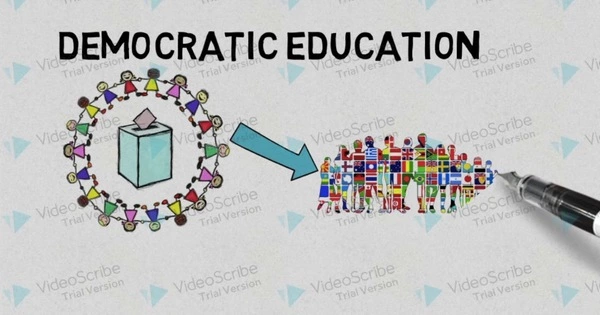Democratic education is a type of formal education that is democratically organized so that students can manage their own learning and participate in school governance. It is an educational philosophy and approach that emphasizes student empowerment, voice, and participation in their learning environments’ decision-making processes. Democratic education is frequently explicitly emancipatory, with students’ voices equal to the teacher’s. It emphasizes the value of nurturing the whole person, as well as encouraging critical thinking, creativity, and the development of responsible citizenship.
Democratic education has been practiced since at least the 17th century. While democratic education has been associated with a number of individuals, there has been no central figure, establishment, or nation that has advocated for it.
Students are encouraged to take an active role in their own learning in a democratic education environment, working collaboratively with their peers and teachers to co-create their learning experiences. They are also encouraged to participate in school governance, influencing policies and practices that affect their education and well-being.
A democratic education has been shown to improve student achievement and engagement. It also boosts participation by giving students more opportunities to incorporate their interests into their learning. A Democratic Education, in addition to improving student performance, provides students with the opportunity to develop skills that will help them become active and responsible citizens in society after graduation. This, it is argued, allows them to function as adults in a democratic society.
Objective
The goal of a democratic education is to give students some control over their education so that they can become more active and responsible members of their community. A Democratic Education, in general, entails increasing student choice in school.
The goal of democratic education is to create an environment that fosters autonomy, self-determination, and community engagement, while also promoting academic excellence. It is based on the belief that education is not just about acquiring knowledge and skills, but also about preparing students to be active, engaged citizens who are able to participate fully in a democratic society.
There are a variety of approaches to democratic education, ranging from alternative schools and progressive education programs to homeschooling and unschooling. While each approach has its own unique characteristics, they all share a commitment to student voice and agency, and to creating a learning environment that is responsive to the needs and interests of each individual learner.
















